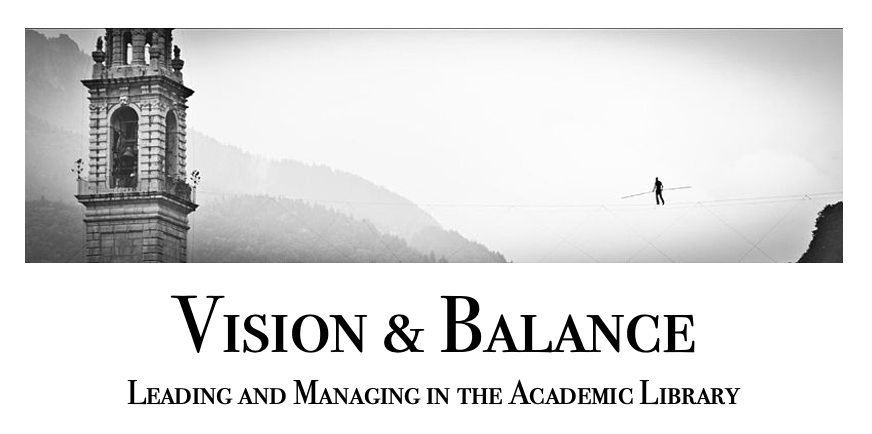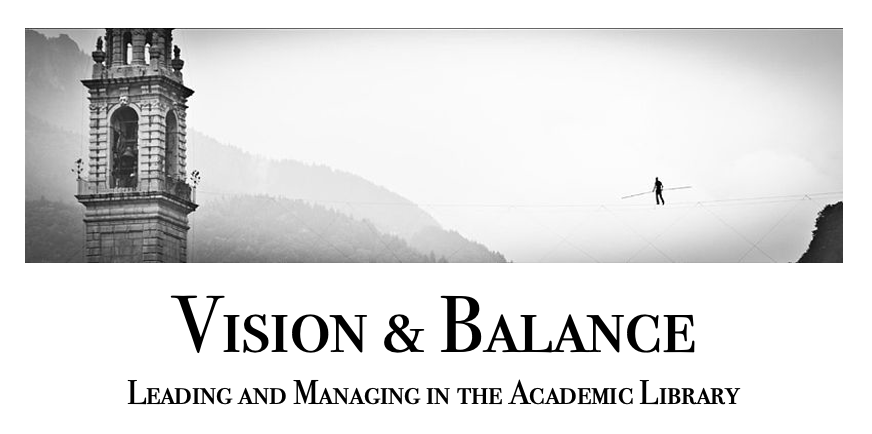Workflow Management Part 1: Internalize Complexity

I know what you’re thinking: ”I’m a leader, not a manager. Workflow management isn’t my job.”
Two answers:
- Managers are leaders, or should be, so workflows really are a leadership issue.
- Administrative leaders may not manage workflows directly, but they create an organizational culture of workflow management (whether they intend to or not).
This week I want to talk about two leadership principles related to the culture of workflow management. These are principles that academic library leaders need to promulgate throughout their organizations both by precept and (whenever they can) by example. The first is internalize complexity. The second is externalize authority. I’ll focus on the first one in today’s public post, and on the second in Thursday’s subscribers-only post.
When I say “internalize complexity,” I'm invoking the principle that – to the degree possible – the library should deal with complexity behind the scenes in order to make the patron’s experience as straightforward and intuitive as possible. So: the processes involved with interlibrary loan may be complex, but the patron’s experience of using interlibrary loan should be simple and intuitive – we deal with the complex stuff so that the patron doesn’t have to. Cataloging is complicated, but if we’re doing it right – keeping the complexity behind the scenes rather than creating interfaces that require our patrons to understand how the catalog is structured – searching the catalog and getting relevant, high-quality results will be straightforward and intuitive. And so forth.
Now again, I can anticipate a couple of negative responses to this argument – because I’ve encountered them many times:
- “Our job is not to spoon-feed college students. This is higher education; it’s not supposed to be as easy as possible.” To which I say: nonsense – at least in the context of the library. College students should be challenged by their coursework and by the content of our collections, not by the process of gaining access to library materials and services. The less time they have to spend trying to figure out how to use the catalog or the databases (or where to find the book they need, or how to fill out the ILL form, etc.), the more time they have to engage in the actual work of education, which has to do with encountering and processing ideas and concepts, not wrestling with library interfaces.
- “Why is patrons’ time more valuable than ours?” To which I say: because they’re paying, and you’re being paid. I know that sounds crass and neoliberal and capitalist and managerial, but it’s still an important reality. Library patrons are not here to make our lives easier by adapting to our preferred workflows; our workflows are (or should be) adapted to make it easier for patrons to pursue their educational goals. And I’ll go further and say that anyone who doesn’t understand that should be working someplace other than an academic library.
Now, obviously, we can’t remove all complexity and difficulty from the lives of our patrons. No matter how hard we try to make the library easy and intuitive to use, it will still pose challenges to our users – to some of them more than to others. And of course, a big part of our job is helping them deal with that challenge. But it matters very much – and it makes a big difference to our patrons – whether our general strategy is to try to bring complexity indoors or to leave it in the patron’s experience.
So when it comes to workflows, what do I mean by “externalize authority”? Tune in Thursday to find out.
